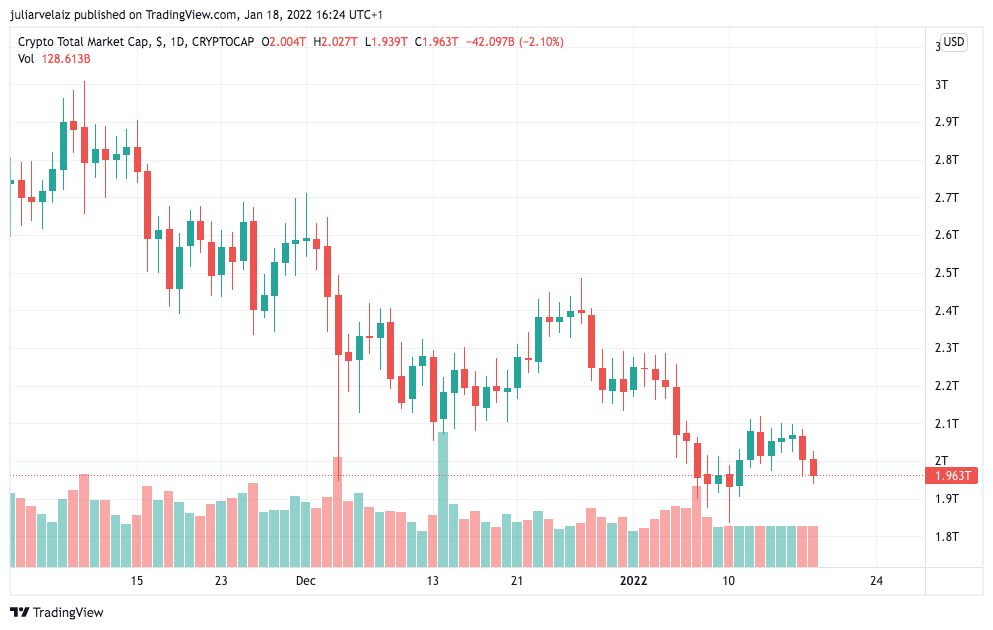The NFT was launched last year. Everyday: The First 5,000 Day of Everything by Beeple sold at Christie’s for $69.3 million, it catapulted the non-fungible token’s market into the mainstream. The boom continues as a large amount of people invest billions in the industry.
NewsBTC has reported a dramatic increase in NFT trade volume this year despite a falling cryptocurrency market. Dappradar’s report showed that NFT trading generated approximately $11.9 million in January’s first ten day.
Our previous report quotes Mason Nystrom, a senior research analyst at Messari, who alleged that “The cryptomarkets are fairly correlated – the market tends to rise and fall with Bitcoin. This has made it surprisingly interesting over the recent downturn as the NFT market has continued to increase in volumes.”
The rapid growth of NFT hasn’t compelled the Internal Revenue Service to clarify the taxation rules for these assets.
Taxation professionals are still unsure of the situation and cannot predict the outcomes. Are users ready for tax filing season, as a significant portion of NFT traffic is from younger generations? Future penalties are being considered by the IRS.
| January is difficult for investors but NFT and gameFi appear to be eating well
The IRS Gears Up
In November 2021, the $1.2 trillion infrastructure bill was signed into law by President Joe Biden as a key part of his economic agenda, proposing large investments in the country’s infrastructure. There are a few tax changes that will provide funding.
Watching over the cryptocurrency industry’s boom, the infrastructure bill directly targets its investors, but they fail to educate digital assets users on all the information they need to report. This could lead to felony charges for tax evasion.
However, the law updates the definition of the terms “broker” and “digital assets”, and clarifies that users with regular transactions or any crypto transaction over $10,000 must report that data to the IRS. Digital assets are treated in the same way as capital gains, but with a different tax system than stock or bond trades.
Non-fungible tokens, however, aren’t as well defined as digital assets. There is still a lot to be interpreted. That’s a dangerous game for investors, but the IRS investigators seem eager for cases to surge soon and are ready to crackdown on the market. It is possible that they could see billions in NFT gains tax bills.
Are NFT Investors Evading Taxes?
It is unclear whether NFTs count as art collectors, or are they taxable. This creates confusion. It is fundamental to be aware of this because most crypto assets and stocks have a long-term capital-gains rate up to 20%, but for art collectibles, it’s 28%. And if NFTs are to be considered as ordinary income, the rate could go as high as 37%.
Michael Desmond, the former chief counsel at the IRS who is now a partner at Gibson, Dunn & Crutcher, commented for Bloomberg that the rising NFT trading traffic might force the IRS to clarify the rules, “but it may begin auditing people first.”
The best-case scenario is gearing up and going through large amounts of paperwork, like the NFT investor Adam Hollander did, spending 50 hours checking months’ worth of transactions. He stated that “It’s an absolute nightmare,” and added that “There are people who aren’t going to be willing to do what I’m doing.”
This nightmare actually is better than tax evasion penalties.
| Lympo Shuts Down Sports NFT Marketplace Lympo – $18.7M Hack
